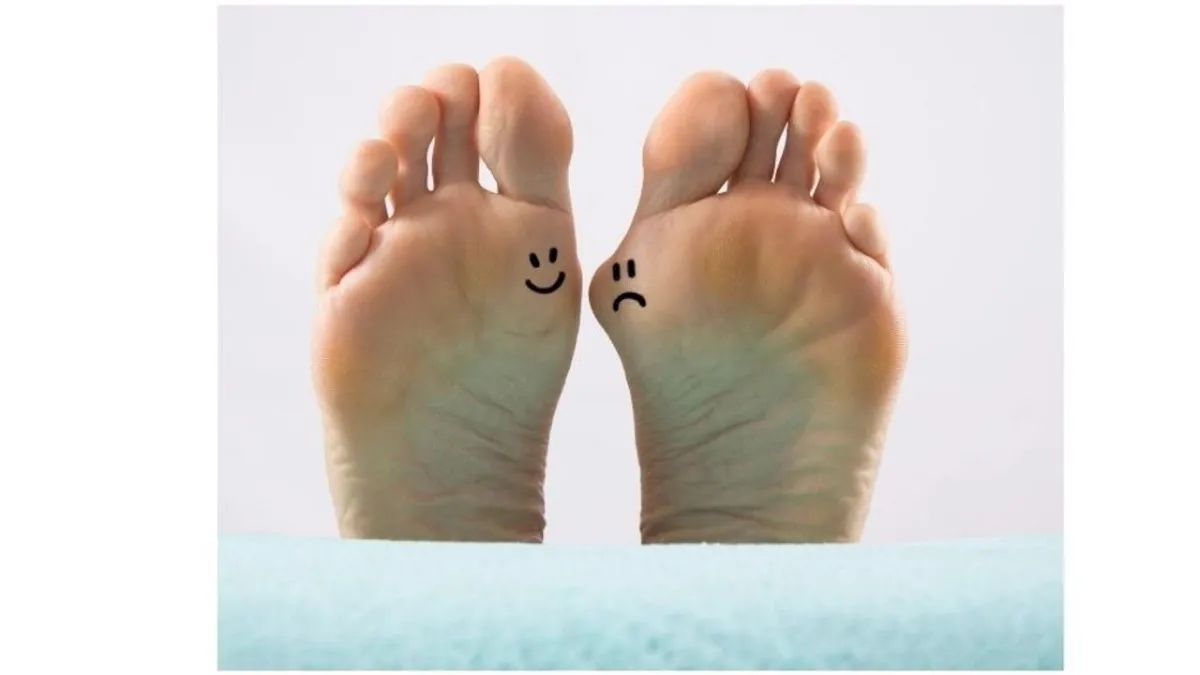Tips & Advice From South Dublin Podiatry

Bunions- How to Avoid Surgery!
Bunions are one of the most common issues that we treat from week to week in the clinic. However, they are something that our patients are usually very worried about as they usually don’t want to end up like a friend or relative who they say have “terrible feet”.
What is a bunion?
Bunions or the fancy name “Hallux Abducto Valgus” is a deformity of the big toe joint. It occurs when the big toe drifts sideways towards the lesser toes, sometimes even pushing the second or third toes out the way.
At the same time the forefoot widens making the fitting of shoes difficult. In extreme cases people may need bunion shoes!
Here are a few facts and tips that should help to put you at ease if you are worried that you are developing bunions.
Muscular Imbalance - Bunions are initially caused by a muscle on one side of the big toe joint being stronger than a muscle on the other side. Muscles will always adapt to their shortest length, so when one muscle starts to win the fight over the other, it continues to pull and put extra tension on one side of the joint.
Bony Changes - After the muscle imbalance has begun to deform the joint, the body lays down extra bone or a “bump” in order to protect the joint. This is technically a form of arthritis.
Pain - Bunions can develop over time and become, however, sometimes patients can have very developed bunions with no pain at all. It generally varies from person to person.
Loss of Movement - The big toe joint is designed to move in one direction which is straight forwards and backwards. When a bunion develops, it forces the big toe joint out of it’s optimum plane of movement. In turn, this causes a loss of movement at the joint as it is not able to function as intended.
Smaller Toes and Joints - The big toe joint is responsible for taking 75-80% of body weight when we walk. When the joint is not functioning correctly, either because of a bunion or a different reason, the foot compensates and pushes some of this load onto the small toes and their corresponding joints. As these joints are not designed to take that much load, it is common to see the development of pain and issues in the smaller joints.Pain in
Footwear - It is commonly thought that tight-fitting footwear is the cause of bunions, however this is not the case. Bunions are a hereditary condition which are generally passed on from a person’s parents. Although footwear is not wholly responsible for the development of bunions, it can make the issue worse. Tight fitting shoes tend to squeeze the bunion and can cause a multitude of issues, such as causing pain in a non-painful bunion, irritation of the skin over the bunion and the formation of callus and corns.
Is Surgery the only Bunion treatment option?
No, while surgery is the only way to make a Hallux Valgus foot bunion look straighter and can be a success it is often not.
It is probable that bunion surgery will lead to altered gait and can often lead to little or no reduction in pain. For this reason it is normally recommended as a last resort after exhausting conservative options.
So what else can I do as Bunion treatment before I consider Bunion Surgery?
At South Dublin Podiatry when we are presented with sore or painful bunions we assess what are the forces that are causing the bunions to be painful.
These range from ill fitting shoes to Foot Mechanics or Pronation. We then devise a treatment plan to alter these forces to alleviate the pain. This may include orthoses, footwear advice, manual therapy etc.
What's My Next Step?
Go to see your Podiatrist - Bunions are one of the most common issues a podiatrist will see. They are able to diagnose, and treat any issues you may be having and will educate you on how to care for your bunion and prevent pain.
If You Think You Have A Bunion Call Us Now: 📞01 9012009
Or
Fill Out The Form Below And Request A Call From. The South Dublin Podiatry Team
Ask South Dublin Podiatry And Their Team
Fill in the form to request a Call From Our Team
One of our team members will call you for FREE and answer any questions or concerns you may have about your condition




